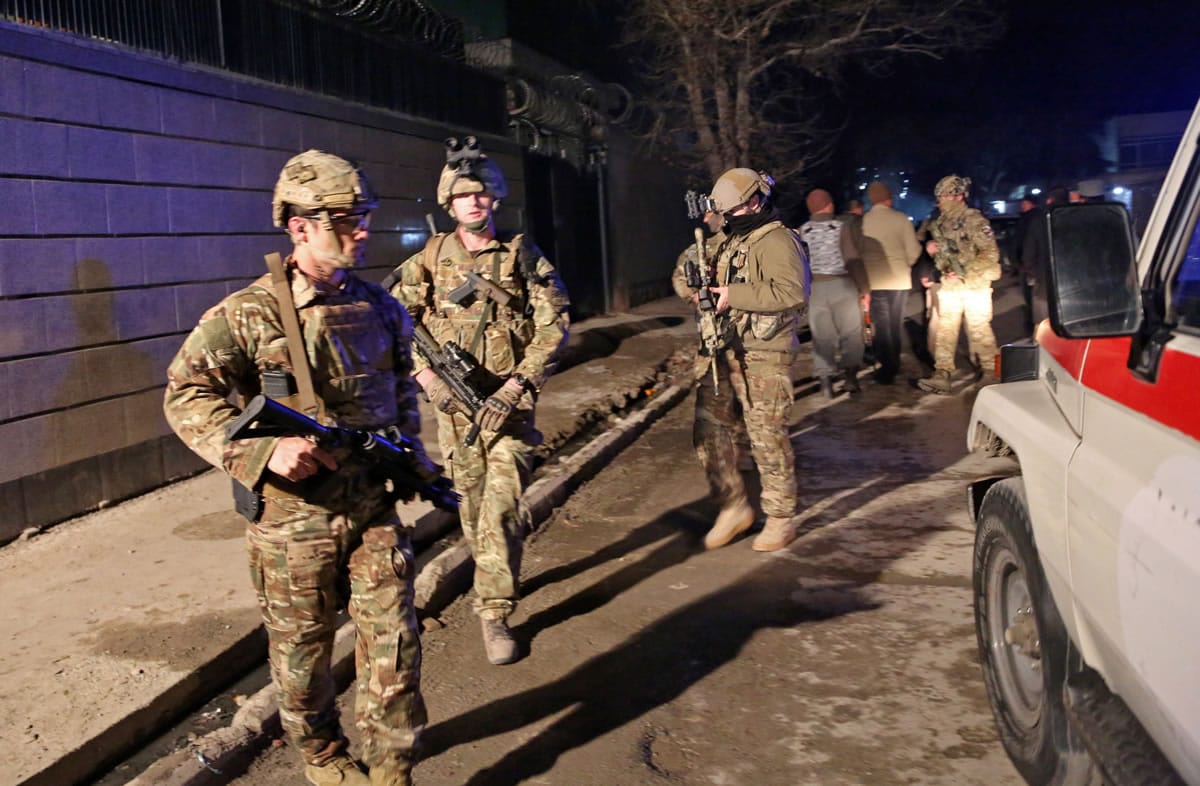WASHINGTON — The Pentagon has proposed to President Barack Obama that the United States leave 10,000 troops in Afghanistan after 2014 or withdraw all of them, according to a U.S. official familiar with the discussions who asked not to be identified.
The 10,000-or-nothing recommendation represents the military’s conclusion that a smaller force wouldn’t be enough to provide security for U.S. personnel while conducting counterterrorism operations and training the Afghan military. The U.S. and its NATO allies have been discussing a combined force of 8,000 to 12,000 troops since February 2013.
The proposal reflects negotiations within the administration over the future American role in Afghanistan even as prospects for a continued U.S. presence beyond this year remain clouded by resistance from Afghan President Hamid Karzai to signing a bilateral security agreement.
While a gathering of tribal elders unanimously approved the agreement last year, Karzai has said he would sign the pact, which would grant immunity to American troops from local laws, only after presidential elections scheduled for April. He has also made a succession of demands for U.S. concessions.
The Obama administration has said if Karzai fails to sign soon, the U.S. will initiate plans to leave no troops behind in the country. After setting deadlines for the agreement and failing to get Karzai to budge, the Obama administration is now weighing next steps.
“After 2014, Afghanistan can live without a ubiquitous presence of U.S. military forces in their country,” Army Gen. Martin Dempsey, chairman of the Joint Chiefs of Staff, said in November. “They can’t live without any.”
The U.S. currently has 38,000 troops in Afghanistan out of a total of 57,000 in the International Security Assistance Force. The U.S. is on course to reduce its troop level to 33,000 by the end of February.
At the White House, a spokeswoman for the National Security Council declined to discuss details of the administration’s plan for a drawdown of troops.
“The president has not yet made decisions about final troop numbers,” Caitlin Hayden said in response to an email. The White House is consulting military commanders, intelligence authorities, diplomats, and development experts before making a decision “about our post-2014 presence in Afghanistan,” she said.
The Pentagon’s proposal to keep 10,000 troops or withdraw completely was reported Tuesday night on the websites of the Wall Street Journal and the New York Times.
The Journal reported that the Pentagon also has proposed that the residual force left behind in Afghanistan after this year may be completely withdrawn by 2016, when Obama completes his second term.
Vice President Joe Biden and some other White House officials are pressing for the withdrawal of all U.S. troops by the end of this year or early in 2015, according to a second U.S. official, who asked not to be named discussing internal deliberations.
U.S. military and intelligence officials have said that such a time frame would be too short to finish training and equipping the Afghan security forces, and that it would leave even the trained Afghan National Security Forces with inadequate logistical, intelligence, transportation, medical and other support, the official said. It also may let the Taliban retake some areas of eastern and southern Afghanistan.
Biden opposed the 2009 surge of 30,000 additional troops to Afghanistan and also fueled doubts in Obama’s mind about the war in Afghanistan, former Defense Secretary Robert Gates wrote in his book, “Duty: Memoirs of a Secretary at War.”
At one point, Gates wrote that he called Obama’s then- national security adviser, Tom Donilon, to complain that Biden was “poisoning the well” by repeatedly telling the president that the military was undermining him and that the Afghan strategy was failing.
Gates has told reporters that removing all U.S. troops from Afghanistan would be a “terrible strategic mistake.”



